Opinion
As we continue the wait for 5G services

By Sonny Aragba-Akpore
Nikolai Gogol’s “The Inspector General “ told a story many years ago that resonates today.
Apart from painting a picture of mockery in his satirical rendition, it tells us about the frailty of humanity and its foibles despite the pretences.
Ben Jonson,s “ Volpone” brings the story home and giggles at its consequences as capsulated by the hunchback displaying greed and pretentious lifestyle in society.
But more instructive is Gogol,s “The Inspector General “ which depicts deception in its entirety.
In 1978,Nigerian playwright, a very big example of his generation, Femi Osofisan, published
“Who is Afraid of Solarin” adapted from Gogol’s “The Inspector General “ and brought the story home painting a lurid picture of the deception that goes on in government.
Osofisan never envisaged our present state of affairs but his picture of the future was clear for all to see as we experience today.
But was he a visionary, who could predict the things to come. Perhaps so.
Solarin as a public complaints commissioner in the old western state was revered by all and his name struck awe in society as he had his eyes on integrity and so like Gogol’s character, Solarin was a change agent.
But Ofcourse many people used his name, dropped it in order to create awe on society, hoodwink the people and make them accept “defeat as fate” to quote Osofisan.
What has happened to integrity in public service and how do we situate this in telecommunications services especially with regards to poor quality of service, drop calls and data fleecing yet no one seems to care and questions not being asked and no answers in that regard.
If we have managed to live with the drudgery of poor services, how do we begin the story of fifth generation (5G) telecommunications services which allegedly entered Nigeria nearly three years ago without drawing inference from the pieces of literature highlighted above?
The materials talk about life and everyday living. So are telecommunications services because they are integral parts of everyday living and when government decided to introduce 5G into the country,those familiar with its workings saw it as promises of life abundance.
It’s nearly 30 months since its launch but the noise and euphoria that welcomed it have died down, and the people have little or nothing to show for it except government which was the biggest beneficiary having collected $273.6m each from the three licenced operators and while we await the services ,the government, indeed everyone looks elsewhere for the much hyped 5G to take proper root.
If anything at all, there are pockets of services so far, offered by the three supposed operators for the services: MTN Nigeria, Mafab Communications and Airtel Nigeria but as things stand today, it appears 5G was mere noise and hype as Nigerians await in their various corners for the much talked about 5G services that Karl Toriola, MTN Chief said will be a game changer.
Strangely too,no one is asking questions as to the existence or not of the 5G services.
Have subscribers become so complacent that they have accepted defeat as fate in the face of corporate docility?
Even the once vibrant pressure groups-Association of Telecommunications Companies of Nigeria (ATCON),Association of Licenced Telecommunications Companies of Nigeria ( ALTON) among others have lost their voices.
Are we now confined to accepting anything simply because we are afraid to face the consequences therefrom if we shout?
Everyone yearns for heaven but afraid of dying. But like Osofisan said somewhere, ”is this death so horrible that we all must compromise with injustice in order to live?”. The future is our judge.
While we agree that providing services is purely a business decision but are business people not in business in their own interests and that of society?
And no one is talking about the services yet nobody is worried or are they experiencing subdued worries until the services come or have they completely given up on the expectation of the services?
On June 19, 2023, the last of the three to acquire the 5G licence, Airtel, kicked off its fifth generation network rollout in four locations, Lagos, Ogun, Rivers and Abuja, and the firm, is targeting coverage of the entire country by the end of the current financial year.
Unsuspecting Nigerians who joined in the excitement of the alleged entry of 5G services are now unsure of their expectations.
Licences were awarded on December 21, 2021 to MTN Nigeria and a little known Mafab Communications. They had a roll out timeline of August 2022 but the regulator granted an extension of five months to Mafab Communications to get ready. Thus the regulator changed the rules in between the game thus sending the first signal that all was not well. There have been several red flags.
MTN tried to weather the storm despite the challenges (even when it will not admit it openly) and “launched” a semblance of 5G services in parts of Nigeria. But that is where the excitement stops. Airtel, a late arrival shows some promises as we wait.
And so, the hype built around 5G has left everyone including the operators and regulators speechless as there is very little tangible evidence of availability of services so far. We have now accepted our fate as the wait goes on.
Nigerian Communications Commission (NCC) data show that 5G subscriptions in the country increased to 2.3 million in December 2023.
This, however, represents an insignificant 1.04% of the country’s total active subscriptions for telephone services, which stood at 224.7 million at the end of 2023.
International Telecommunications Union (ITU) Mobile Network Coverage facts and figures 2023 says “Since commercial deployment began in 2019, 5G coverage has increased to reach 40 per cent of the world population in 2023.
Distribution, however, remains very uneven. While 89 per cent of the population in high-income countries is covered by a 5G network, coverage remains limited in low-income countries. Europe boasts the most extensive 5G coverage, with 68 per cent of the population covered, followed by the Americas region (59 per cent) and the Asia-Pacific region (42 per cent). Coverage reaches 12 per cent of the population in the Arab States region and less than 10 per cent in the CIS region (8 per cent) and Africa region (6 per cent).
Ninety per cent of the world population is covered by 4G, and where 5G is not available, this remains a very good alternative. However, 55 per cent of people without access to 4G live in low-income countries. Whereas 95 per cent of the population in high-income and middle-income countries is covered by 4G or above, the proportion drops to 39 per cent in low-income countries, where 3G remains the dominant technology, and often the only technology available to connect to the Internet.”
The overall pace of 5G growth in the country remains sluggish, underscoring the complexities associated with transitioning to next-generation networks.
However, the data showed that 2G subscriptions continued to dominate, representing 57.78 per cent of connections in January 2024.
The ITU recently revealed that Africa maintained the lowest 5G coverage rate globally, standing at only 6 per cent as of December 2023.
It attributed the low 5G coverage rate on the continent to the ongoing significance of older mobile technologies, particularly 2G and 3G networks.
The ITU report highlighted the persistent reliance on 2G and 3G networks in many African countries, including Nigeria, where those technologies offer a cost-effective means of delivering essential mobile services, especially in regions lacking access to 4G and 5G networks.
In 2022, around one tenth of all connections worldwide used 5G technology, with this share set to surpass one half by the end of the decade. However, regional disparity is expected to persist, with the availability of 5G infrastructure, high costs imposed by network operators, and the availability of 5G handsets continuing to impact consumer uptake.
The North America, Developed Asia Pacific, and Gulf Cooperation Council (GCC) regions are set to have surpassed 90 percent adoption by 2030, while adoption in Sub-Saharan Africa is projected to remain below 20 percent.
However, it has been suggested that 5G could play a key role in bridging the digital divide in the form of fixed wireless access (FWA).
5G FWA services use 5G networks to deliver high speed broadband internet in regions without fixed broadband infrastructure. As of 2023, almost a third of service providers in the Middle East and Africa offered a 5G FWA service.
The Global System Mobile Association (GSMA) says by 2025, 5G networks are likely to cover one-third of the world’s population. The impact on the mobile industry and its customers will be profound.
5G is more than a new generation of technologies; it denotes a new era in which connectivity will become increasingly fluid and flexible.
5G Networks will adapt to applications and performance will be tailored precisely to the needs of the user.
Working closely with the mobile operators pioneering 5G, the GSMA is engaging with governments, vertical industries including automotive, financial services, healthcare providers, transport operators, utilities and other industry sectors to develop business cases for 5G.
5G remains an exciting new technology that consumers and service providers are bracing up for.
5G statistics reveal projected volume growth for 5G smartphones as well as for revenue for 5G chipsets. Leading original equipment manufacturers are also beefing up 5G patents in a bid to be first in the 5G wars.
There are currently hundreds of millions of 5G global subscriptions. Subscriptions are forecast to reach three billion by 2025. (5G Americas and Omdia, 2021)
As of April 2021, there were 683 total 5G and Long Term Evolution (LTE) deployments made worldwide. (5G Americas and Omdia, 2021)
There are currently 135 5G networks around the world that comply with 3rd Generation Partnership Project (3GPP) standards. (5G Americas, 2020)
5G smartphone shipments comprised 40% of global volume by 2021. This is expected to grow to 69% in 2025. (IDC, 2021)
In 2021, there were 89.5 million 5G smartphone units shipped to the United States. 5G smartphone shipments will reach 153.3 million units in 2025, at a CAGR of 35.6%.
Consumer electronics and automotive applications are forecast to both have a 21.7% share of the 5G infrastructure by 2025. Meanwhile, industrial apps will have a 20.1% share while energy and utilities will have a 15.7% share. (Statista, 2020)
The 5G chipset market reached $3.55 billion in 2021 and $22.86 billion by 2027, at a CAGR of 41%. (Statista, The Insight Partners)
Samsung has a 74% market share of the 5G smartphone market in the US. This is followed by LG at 15% and OnePlus at 11%.
Huawei has a 15.39% share of 5G families with patents. Huawei is followed by Qualcomm (11.24%), ZTE (9.81%), and Samsung (6.7%).
Data presented by Bankr indicates that the 5G technology global coverage will grow by 253.84% in the next five years. By 2025, about 53% of the global population at 4.14 billion will have access to the technology.
Few regions are driving 5G technology uptake
In 2021, the network coverage reached an estimated 1.95 billion people representing about 25% of the global population. In the last two years, the network access progressed to 32% of the global population at 2.5 billion.
In 2023, 5G network reached about 39% of the global population at 3.05 billion people. By 2024, an estimated 46% of the global population at 3.6 billion will be using the network.
According to the research report: “The over one billion access to 5G coverage in 2020 is a culmination of a joint clear consensus on the 5G network by major players in recent years. The coverage is significant however, it is being driven by a select few regions in Asia, the US, and Europe.
Other regions are still building the infrastructure to accommodate the technology. Notably, Asia is a current leader in 5G after undergoing a rapid migration in mobile broadband networks and smartphones setting the perfect ground for 5G adoption.”
Opinion
Dismantling the false Narrative of a “Coup” in Rivers State
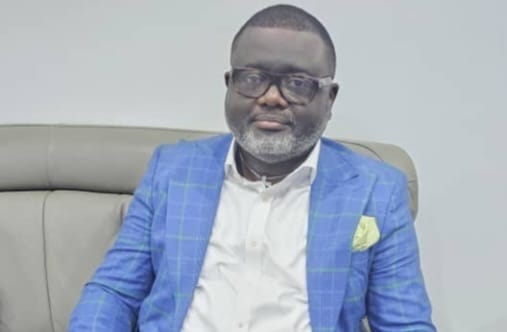
By Jones Onyereri
The assertions that President Tinubu’s intervention in Rivers State constitutes an unconstitutional power grab or a “military coup in civilian disguise” fundamentally misrepresent the legal, political, and security realities that necessitated federal action. Far from being a partisan maneuver, the declaration of a state of emergency and subsequent measures were lawful, proportionate, and grounded in the imperative to prevent a total collapse of governance and public order. Below is a thorough rebuttal to the allegations:
The Nigerian Constitution explicitly empowers the President to declare a state of emergency under Section 305 when there is a clear threat to public safety or a breakdown of governance. The escalation of pipeline vandalism by militants—which crippled economic activity, endangered lives, and exacerbated environmental degradation—coupled with the Supreme Court’s February 18 judgment highlighting governance failures in Rivers State, provided incontrovertible justification for federal intervention. The claim that “no emergency existed” ignores the state government’s demonstrable inaction in addressing these threats, which risked spiraling into wider violence. Emergency powers are, by design, temporary and exceptional, aimed at restoring stability, not undermining democracy.
The appointment of Admiral Ibok-Ete Ibas as Sole Administrator aligns with constitutional provisions for federal intervention during crises. Section 11 of the Constitution permits the National Assembly to legislate for a state in extraordinary circumstances, and the President’s action enjoys implicit legislative backing as a stopgap to avert anarchy. Admiral Ibas, a retired military officer with no overt political ties, was selected for his administrative expertise, not as a proxy for any faction. His mandate is strictly limited to stabilizing the state, facilitating the return to democratic governance, and ensuring the security forces can operate without partisan interference. To equate this with a “military coup” is hyperbolic and disregards the transparent, legal framework guiding his role.
Critics allege defiance of Supreme Court orders regarding state funds, but this misinterprets the interplay between judicial mandates and emergency executive authority. While the Court initially restricted financial flows to Rivers State due to governance disputes, the escalation of the crisis necessitated federal release of funds under the “doctrine of necessity” to sustain critical services like healthcare, education, and infrastructure. The Constitution prioritizes the security and welfare of citizens (Section 14(2)(b)), and the President’s duty to uphold this principle supersedes rigid adherence to procedural norms during emergencies.
The Sole Administrator’s actions, including the formulation of regulations and restructuring of local government administrations, operate within the bounds of his provisional mandate. These regulations require approval by the Federal Executive Council (FEC), ensuring oversight and accountability. The replacement of local government officials was not a “power grab” but a necessary step to dismantle networks complicit in revenue diversion or inefficiency. The Supreme Court’s insistence on democratically elected local governments remains sacrosanct, but interim appointments during emergencies are globally recognized mechanisms to restore functionality before elections can be organized.
Claims that the Administrator has overstepped by preparing a budget or appointing a Secretary to the State Government (SSG) ignore the practical realities of governance. In the absence of a functional State Assembly, provisional budgets based on existing frameworks ensure continuity of public services. Similarly, the appointment of an SSG—a routine administrative role—falls within the Administrator’s authority to maintain bureaucratic operations. These measures are neither permanent nor unconstitutional; they are transitional tools to prevent total institutional paralysis.
The narrative that this intervention serves Minister Wike’s political interests is speculative and distracts from its stated purpose. Restructuring boards and commissions, including the Rivers State Electoral Commission, aims to depoliticize institutions vital to free and fair elections. The focus on “Wike loyalists” assumes nefarious intent without evidence, whereas the Administrator’s appointments could equally reflect efforts to engage experienced personnel familiar with the state’s administrative landscape. The assertion that federal actions target Governor Fubara’s allies conflates routine accountability with persecution; in crises, restructuring is inevitable to eliminate inefficiency or bias.
Regarding the House of Assembly reconstruction, federal involvement ensures the project adheres to timelines and standards, avoiding further delays that could destabilize legislative functions. The Governor’s progress, while commendable, does not negate the need for independent oversight in a volatile environment.
President Tinubu’s intervention is neither indefinite nor authoritarian. Emergency measures will lapse once security is restored, and democratic structures are reinstated. The National Assembly retains the authority to review and curtail these actions under Section 11, ensuring checks and balances. To frame this as a “2027 political takeover” is a cynical distortion of a lawful, necessary intervention to prevent Rivers State from descending into chaos.
In conclusion, the allegations of a “civilian coup” or unconstitutional power grab disregard the constitutional safeguards and urgent pragmatic considerations guiding federal actions. The President’s duty to protect lives and livelihoods in Rivers State transcends political expediency. While vigilance against overreach is prudent, dismissing all stabilization efforts as partisan machinations undermines the legitimate pursuit of peace and order. The people of Rivers State deserve functional governance, not perpetual crisis—and federal intervention, however imperfect, is a constitutional means to that end.
Rt Hon Sir Jones Onyereri PhD, KSP, FCIPAN
April 12, 2025
Opinion
Tik Tok gets another lifeline from being banned

By Sonny Aragba-Akpore
On Saturday April 5,United States President Donald Trump announced an extension of 75 days for Tik Tok on his Truth Social platform, saying the TikTok deal “requires more work to ensure all necessary approvals are signed.”
He said he is signing an executive order “to keep TikTok up and running for an additional 75 days.”
With this development, the 170 million subscribers connected to Tik Tok in the United States of America (USA) have another 75 days to meander on the App unhindered.
This new deadline which an Executive Order covers follows the expiration of the first 75 days Order on April 5.
Tik Tok owners,ByteDance of China, have these 75 days to divest completely from the American operations or risk being sent to the dark or being banned.
China faces a 54% aggregate tariff on goods imported into the US, and has retaliated with 34% in counter tariffs.
Reports suggest several potential buyers for TikTok have cropped up in recent days.
Amazon has put in a last-minute offer to the White House to acquire the platform, according to Agency reports though the firm has declined comment.
Several other potential buyers include billionaire Frank McCourt, together with Canadian businessman Kevin O’Leary. Alexis Ohanian, who co-founded Reddit, has said he has joined Mr McCourt’s bid.
Computing giant Microsoft, private equity giant Blackstone, venture capital firm Andreessen Horowitz and search engine Perplexity AI are also reportedly in the running for a stake.
Trump has said his administration was in touch with four separate groups interested in a potential TikTok deal, though he has not named them.
Vice-President JD Vance is spearheading the administration’s effort to find a buyer.
The president has also suggested the US could offer a deal where China agrees to approve a TikTok sale in exchange for relief from US tariffs on Chinese imports.
“We hope to continue working in Good Faith with China, who I understand are not very happy about our Reciprocal Tariffs,” Trump wrote on Truth Social.
He added that the trade levies are “the most powerful economic tool, and very important to our national security”.
Trump granted TikTok a second 75-day extension to comply with a law that requires the hugely popular video app to either sell its US operation or face a ban in the country.
“We do not want TikTok to ‘go dark’,” Trump wrote on Truth Social. “We look forward to working with TikTok and China to close the Deal.” The platform is currently owned by Chinese company ByteDance.
Trump’s first extension was granted after he took office in January and this expired on Saturday,April 5,2025.
In a statement on Friday, April 4,ByteDance said it had been in discussion with the Trump administration, but “an agreement has not been executed”.
“There are key matters to be resolved. Any agreement will be subject to approval under Chinese law,” a spokesperson said.
Former US President Joe Biden’s administration had argued that TikTok could be used by China as a tool for spying and political manipulation.
Congress passed a bipartisan law last year that gave ByteDance six months to sell its controlling stake in TikTok or see the app blocked in the US.
Opponents of a ban have cited freedom of speech as a reason for keeping the platform open.
But the new extension comes as the Trump administration tries to broker a deal to bring the social media platform under American ownership, and keep the popular app running in the US.
“The Deal requires more work to ensure all necessary approvals are signed,” Trump wrote on his Truth Social platform on Friday.
The social media platform, which says it has more than 170 million users in the US, must close in the US under a law passed by Congress – unless a buyer is found.
Agency reports that a TikTok deal was nearly finalised on Wednesday last week but fell apart after Trump on the same day announced sweeping global tariffs, including on China.
Agency reports further explained that ByteDance representatives contacted the White House to inform them China would no longer approve the deal unless negotiations on the tariffs could take place .
Unnamed sources said the plan had been for Trump to sign an order initiating a 120-day period for closing the deal, allowing time to finish paperwork and secure financing.
The agreement had won approval from existing investors, new investors, ByteDance, and the US government, but China backed out once Trump imposed the global import taxes.
The Chinese embassy in Washington DC said in a statement that it “opposed practices that violate the basic principles of the market economy”.
A federal law signed by former President Joe Biden in 2024 effectively banned TikTok if it remained under Chinese ownership. The initial law called for the app to permanently go offline on Jan. 20, but Trump signed an executive order extending the deadline by 75 days.
The US TikTok ban, which received overwhelming bipartisan support, required TikTok’s parent, ByteDance, to divest the short-form video app over US concerns that it posed a national security threat.
US officials have long argued that the Chinese government, which is designated as a US adversary, could gain access to Americans’ TikTok user data for nefarious purposes or use the platform to spread propaganda.
The US law banning TikTok forces web service providers to stop hosting the app and requires Apple and Google to pull it from their app stores.
TikTok took a challenge to the law all the way to the US Supreme Court, arguing that it infringed on the company’s First Amendment and other constitutional rights. A group of TikTok users made similar claims in a companion case, claiming they, too, had been deprived of constitutional protections.
But the high court ruled in favor of the government, reasoning that TikTok, as a foreign entity, wasn’t entitled to constitutional protections and that national security concerns outweighed the government’s restriction on TikTok use. The court also said the law was limited in its infringement on free speech because social media users could access and post on other social media platforms.
The Act to ban Tik Tok if it did not divest its operations in the USA was signed with broad support from Republicans and Democrats.
Although some lawmakers had urged President Joe Biden to grant a reprieve to prevent TikTok from going dark in the U.S. as soon as Jan. 19,2025 ,the TikTok ban had already resulted in a number of “TikTok refugees” who moved to another Chinese app, RedNote, short for “Little Red Book.” RedNote became the most downloaded app in Apple’s app store in the U.S. the week leading up to the Supreme Court’s decision. If this trend continues, this “migration” to a similarly situated app might defeat the purpose of the Act. The TikTok ban illustrates how U.S. regulatory actions are designed to mitigate potential threats posed by foreign adversaries, significantly increasing compliance requirements for cross-border investments and technology operations. Particularly, the Supreme Court’s decision upholding the TikTok ban underlines the trend of intensifying scrutiny of foreign-controlled entities that collect or handle sensitive data in the U.S.
Although it’s not clear whether there will be a reprieve for Tik Tok,there are strong indications that the Trump administration needs more time to understand the situation and perhaps to be the one to implement the ban.
TikTok has 1,925 billion users globally, with 170 million monthly active users in the United States.
The average daily time spent on TikTok has more than doubled from 27 minutes in 2019 to 58 minutes in 2024.
The most popular categories on TikTok are Entertainment, Dance, and Pranks, with billions of views each.
Top influencers on TikTok include Charli D’Amelio, Khabane Lame, and Addison Rae, each with tens of millions of followers.
TikTok’s user base has grown exponentially from 133 million in 2018 to over 1,925 billion in 2024.
Daily active users on TikTok have skyrocketed into the millions, reflecting the platform’s ability to engage users on a daily basis.
In the year 2020, Trump issued an executive order citing TikTok’s ability to capture vast amounts of user data as a significant national security threat. The order sought to prohibit certain transactions involving ByteDance but was blocked by federal courts.
Subsequently, the Trump Administration directed ByteDance to divest its U.S. TikTok operations and user data, but these efforts were stalled as negotiations with the president Joe Biden Administration aimed at a nondivestiture agreement failed to resolve the government’s concerns.
ByteDance’s proposed national security agreement was ultimately deemed insufficient to mitigate risks posed by Chinese control. Against this backdrop, Congress enacted the sale-or-ban law, further targeting TikTok and similar applications.
> According to the Supreme Court’s finding, TikTok’s ultimate parent company, ByteDance, is a privately held company that has operations in China. ByteDance owns TikTok’s proprietary algorithm, which is developed and maintained in China. The company is subject to Chinese laws that require it to assist or cooperate with the Chinese government’s intelligence work and to ensure that the Chinese government has the power to access and control private data that the company holds.
Underscored in the decision, TikTok’s extensive data collection from more than 170 million U.S. users could be exploited for surveillance, public influence campaigns or other harmful purposes that threaten national security. The Act and the holding reflect Congress’ and the Supreme Court’s efforts to address growing concerns over foreign adversary-controlled applications through the access to sensitive data of U.S. nationals and the resulting potential risks to U.S. national security.
Opinion
INSPIRING TAKEWAYS AT TUNDE OLUSUNLE’S DIAMOND SOIREE
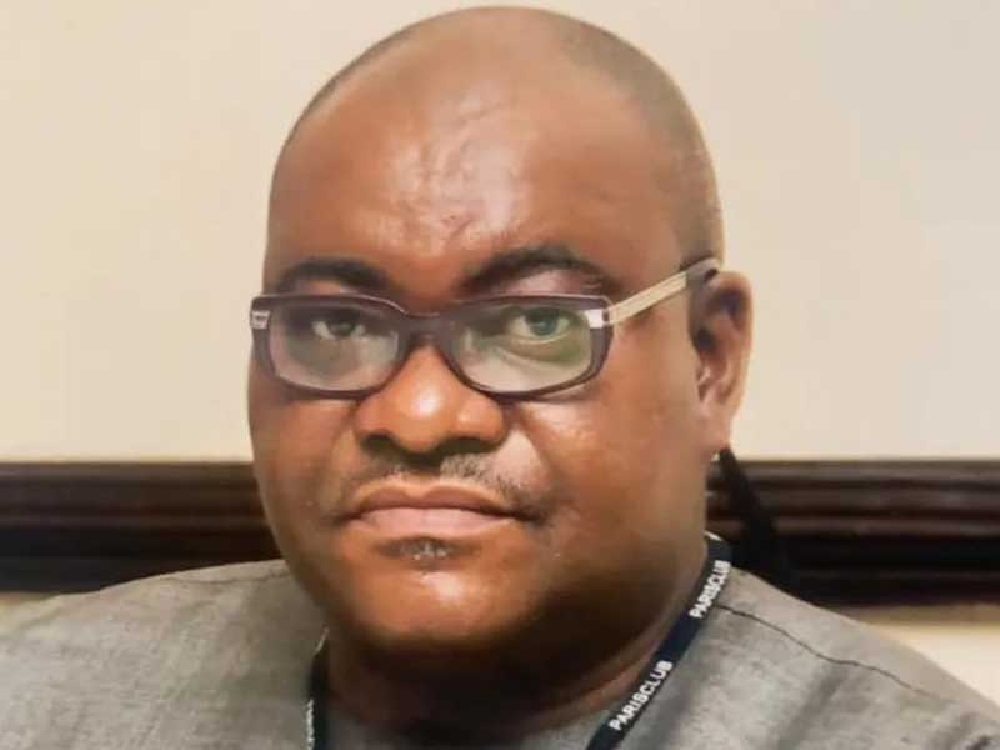
BY BOLAJI AFOLABI
Oftentimes, it’s always challenging to organize commemorative parties for those who have distinctions in this pastime. Dr. Tunde Olusunle, Adjunct Professor of Creative Writing at the University of Abuja; recently re-named Yakubu Gowon University is one of the few masters in the game. Over the last two decades of close relationship with him, he has played massive roles in organizing parties for people. Call him a highly-rated events planner, you may not be wrong. He is not the usual, typical party planner around who has taken up the vocation as business. Olusunle does this for people dear to him; friends, bosses, colleagues, associations, communities, and more pro bono. At any of these occasions, he throws everything towards making the event successful. He invests his time, intellect, organisational savvy, and personal resources; months, weeks, and days to make the event grandiose. Some of his close friends eulogized his dexterity, expertise, and capacities in single-handedly coordinating parties, events, and other celebrations.
The writer, cognisant that Olusunle will mark his birthday in the month of March, was somewhat worried. Why? This year’s birthday was different, as the multi-tasking professional will climb “six stairs” and join the unique club of 60. So, who will coordinate a befitting birthday shindig for the “master organizer?” Can such match the quality of similar others that Babaeto; one of his titles, and moniker loosely translated as “Chief Organizer” has arranged for people? How can the standard set by him be met, if not surpassed? Still pondering, a thought came to mind. Given the national economic crisis that has led to accentuating poverty, staggering hyperinflation, disabling unemployment, corrosive hunger, and more, Olusunle; who is ever conscious of situations around him, may spring surprises. He may opt for simpler and modest celebrations.
About two weeks to d-day, an e-invite forwarded to the writer confirmed one’s thought. The card was beautiful in colours; aesthetic in design; and unique in words. Having close similarities with Babaeto’s imprimatur, it read, “please join us for drinks, bites, and laughter as we commemorate the Diamond Birthday of our father, husband, brother, and good friend; Tunde Olusunle ……” Further checks confirmed that the event was packaged by Dr. Funmi Olusunle, with Aramide, Yomi, and Tobi; wife and children of Babaeto was to be a modest gathering of people. On this, the “plotters” scored a bull’s eye. Surely, Olusunle will be excited that his ever-loving, dependable, and reliable better-half of over three decades, and scions are gradually “edging him out” in the plotting, planning, and execution of numerous surprise parties for people.
The weather on Sunday, March 30 was clement and friendly, away from the scorching sun of the previous day. This was the first surprise while heading to the event. Driving through the Gaduwa-Lokongoma axis of the capital city, the writer had another round of pleasant surprises. Making a detour, vehicular movements to the Estate gate; which was over 400 meters away, gave an idea of what to expect. After “snaking and snailing” through the entrance, which was about 100 meters to the residence, it became clear, and evident that this may not be a small event, as originally planned. The writer, struggling for a comfortable parking space, recalled what Pastor Tumo Ojelabi; a retired Director, Federal Ministry of Information earlier said, “Oga is a friend to all. It is almost impossible to have a small party to mark his 60th birthday. Many people will attend the event, either invited or not.”
Scheduled to officially commence by 5 pm, the programme was up and running an hour before. Given the elaborate preparations for any eventualities, the early arrivers were treated to a collage of bites, drinks, and soul-lifting songs. In between, there were memorable photo sessions on the lush green carpet emblazoned with Olusunle’s very visible portrait properly affixed. As the day progressed, more people made their ways to the beautifully decorated outer foyer of the celebrant’s residence. Hearty exchange of pleasantries, excited high-fives, warm embraces, friendly hugs, and more swept the entire atmosphere. The lively gathering was an admixture of grandparents, fathers, and mothers. Not forgetting the youths, and children. Typical of Olusunle’s enviable virtues of accessibility, humility, humanity, and inclusivity, guests and attendees cuts across different strata of the society.
With Yomi standing-in for the day’s master of ceremonies, (MC), the programme commenced a few minutes past five in the evening. Pastor Omotoba of the Redeemed Christian Church of God, (RCCG) offered the opening prayers, which was brief and impactful. Yomi, as the fill-in compere did a good job, as she was able to galvanize the audience with few jokes, gesticulations, and puzzles. Perhaps sensing the bulk of the happy guests were in their 40s to 60s, she requested for the rendition of early-school rhymes in the 1970s to late 1980s. Masterstroke! Led by a few ladies, the entire place came alive as it brought back nostalgic memories. Thereafter, the MC took over. Aramide delivered a “love letter” that was full of emotions, inspiration, and gratitude. Tobi, the “baby” of the house, who is a strong supporter of English Premier League’s Manchester United was working behind the scenes to ensure the overall success of the birthday bash.
Virtually all those called to describe Olusunle in one word, used the opportunity to heap praises, prayers, and commendations on him. Dr. Tivlumun Nyitse, Associate Professor of Mass Communications at Bingham University, Abuja, confirmed that, “we have been friends for over 40 years. Over the years and decades, the relationship has grown from family to brothers. As I wish him a happy diamond birthday, I advise him to slow down.” Dr. Femi Ajisafe, an agriculture entrepreneur affirmed that, “we both joined, and started work as secondary school teachers somewhere way-off modernity in a rustic, and sleepy community in Kogi state over three decades ago. Happily, we have been together; and our respective families ever since.”
Saluting Olusunle’s resilience, Dr. John Olarewaju, former Director-General, Michael Imodu Institute of Labour and Development Studies, (MIILDS) revealed, “he is ever dogged, determined, and sacrificial. So committed and consistent with writing that he can do it anywhere.” For Dr. Clem Baiye, former Managing Director, Daily Times PLC, “Olusunle is a go-getter.” An obviously joyous and excited Madam Elizabeth Olusunle, Mother of the celebrant expressed appreciation to family members and friends, particularly Dr. Funmi Olusunle for her steadfast love, and consistent understanding of everyone. Mama, also prayed for her dear son. The session ended with an inspiring Yoruba rendition by Anuoluwapo Favour Fabiyi; a hugely gifted and brilliant teenager.
As the evening progressed, it was clear that the planned simple hoedown turned to a classy, high-energy reception laced with flair and flash. Evidently wrapped in panache, pomp, and pageantry. From meals to drinks, jokes, and more, the get-together had trappings of charm, elegance, and sophistication. The dazzles and allure literally arrested everyone all through. It was exciting, entertaining, and memorable. Filled with thrills, frills, grills, and much more. The night was filled with revealing stories and engaging reminiscences that will be inspiring takeaways for many people. The excellent dishing and mixing of “old school” songs got many; including the writer either humming the lyrics, shaking heads, moving bodies or hitting the dance floor.
Indeed, the quality and quantity of guests who came to honour Olusunle; at short notice was a worthy testament of the recognition and acceptability of the celebrant as a “peoples man.” The roll call of personalities was large. Chief Onyema Ugochukwu, pioneer Chairman, Niger Delta Development Commission, (NDDC), and his lovely wife, Dr. Joyce Ugochukwu; AIG Tony Olofu, (Rtd), and wife, DIG Rhoda Olofu; Hon. Leke Abejide, Member representing Yagba Federal Constituency, and his wife were there. Dr. Boboye Oyeyemi, former Corps Marshall, Federal Roads Safety Corps, (FRSC); Pastor Tunde Ipinmisho, former General Manager, Public Affairs, Federal Housing Authority, (FHA); Prof. Sunnie Ododo, former Chief Executive Officer, National Theatre. Dr. Emmanuel Ikpeme, Deputy Secretary-General, Nigerian Football Federation, (NFF); Chief Femi Melefa, consultant and entrepreneur; Pastor Yomi Babaniyi, and wife, and many others graced the occasion. Not forgetting Hon. TeeJay Yusuf, and Deputy Corps Marshall Clement Oladele, who were out of the country and Abuja respectively, but extended their congratulatory messages to Olusunle.
As the elegant soiree spread late night guests had more to savour. Properly garnished, sumptuous delicacies, refrigerated drinks, and eye-popping small chops flowed endlessly. Undoubtedly, the knees-up; according to the British were exhilarating and enthralling. For many, the event, turned out to be a worthy, timely rendezvous of sorts. There was a reunion of old friends; re-kindling of friendships; and building of new networks. Many agreed that it will be an unforgettable experience.
* BOLAJI AFOLABI, a Development Communications specialist was with the Office of Public Affairs, The Presidency, Abuja.
-

 News20 hours ago
News20 hours agoConstituents Drag Akpabio, Senate to Court Over Suspension of Natasha
-
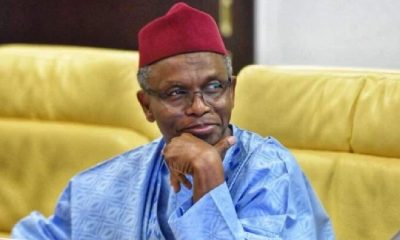
 News6 hours ago
News6 hours agoWe only had lunch with Buhari not 2027 politics -El-Rufai
-

 News19 hours ago
News19 hours agoFCT minister, Wike gives land allotees 21 days to pay or lose offer
-

 News6 hours ago
News6 hours agoSad! Explosion rocks Lagos
-

 News6 hours ago
News6 hours agoParts of Abuja, Niger in total darkness -AEDC confirms
-
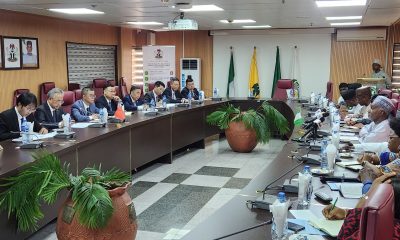
 News21 hours ago
News21 hours agoNigeria-China Reaffirms Commitment To Strategic Partnership
-
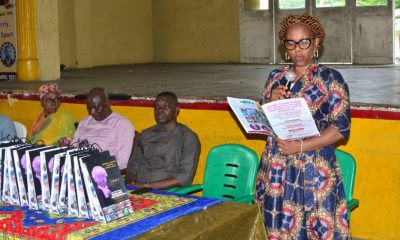
 News20 hours ago
News20 hours agoOERAF Holds Memorial Lecture on the Benefits of Debate Competitions for Students in Ughelli
-
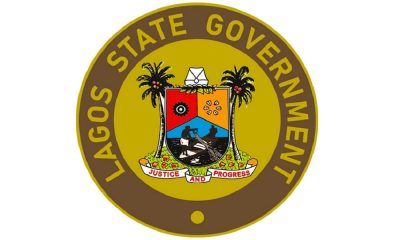
 News23 hours ago
News23 hours agoCoastal Road: Lagos govt demolishes illegal structures along Lekki waterfronts





